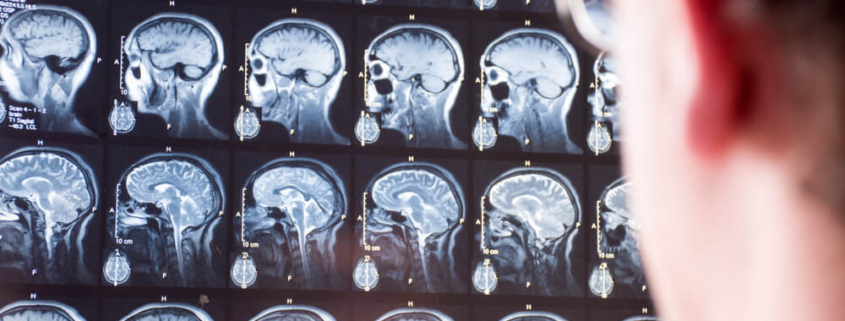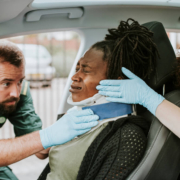Should You See a Neurologist After a Car Accident?
There are several steps you should take following a car accident. For instance, you might need to call 911, notify the insurance company, obtain a police report, take pictures of the vehicle damage, gather witness statements, and hire a car accident lawyer.
It is normal to feel overwhelmed and shaken during this type of crisis. You may find it easy to ignore your health with so much already on your mind. Stemming from this, neglecting appropriate medical intervention at the right time will cost you more in the long run.
As a first step, you should seek emergency medical care following your car accident. It is equally important that you monitor and document any adverse changes in your condition after receiving an initial diagnosis from the physician.
If you experienced even a slight head trauma, back injury, or another nerve injury, you should particularly watch out for symptoms that may indicate neurological issues, as these can prove to be life-threatening. Neurologists can identify potential internal complications even if your primary healthcare professional did not find any symptoms of neurological concerns.
How Can a Neurologist Help?
People often assume that neurologists are specialists that only treat diseases, disorders, and injuries related to the brain and the head. While this may be true to a certain extent, neurologists also treat injuries, diseases, and disorders of the entire nervous system. This includes the spine and every nerve in the body.
There are nerves running from the spinal cord and brain to every single area of the body. This includes the fingertips and toes. Any of these nerves can get damaged in a vehicular accident. An experienced neurologist will be able to help you identify the early stages of automobile accident injury which may have impacted the nerves. They will begin treating the damage aggressively before it can get any worse.
Symptoms Identified by a Neurologist
Neurological problems can manifest in various forms and have several symptoms. There are certain symptoms that are indicative of serious medical issues. You need to pay close attention if you notice any of the following symptoms:
- Vertigo
- Slurred speech
- Loss of bladder control
- Sleep disorders
- Balance problems
- Fainting or feelings of weakness
- Drowsiness or difficulty staying awake
- Numbness or tingling in the body
- Anxiousness, irritability, or mood swings
- Loss of consciousness
- Chronic headaches or migraines
- Pain that worsens with activity
- Dizziness
- Inability to focus or process information
- Seizures
- Soreness in the back, neck, and shoulders
- Changes in taste and smell abilities
- Uncontrollable tics, shaking, twitches, or spasms
- Ringing in the ears
- Vomiting and nausea
- Memory loss
- Light sensitivity
- Loss of vision or blurred vision
- Loss of sensation in the arms, legs, hands, feet, fingers, or toes
- Partial or complete paralysis
- Weakened alertness
It is not uncommon for symptoms to be better on some days and worse on others. Neurologists can treat such symptoms for identifying whether they indicate serious medical problems. You may be tempted to go to a general practitioner if you sustain a neurological injury in a car accident. This can be a serious mistake since untreated neurological symptoms can transform into degenerative ailments and cause chronic pain. Your symptoms won’t get better over time contrary to what you think.
Common Neurological Conditions Linked to Vehicle Accidents
Traumatic brain injury is among the most common neurological condition linked to a car accident. The brain’s normal functioning is disrupted by traumatic brain injuries. It occurs when abrupt external forces impact the head. The brain houses a few of the body’s most essential nerves. The resulting effect of an injury can be catastrophic when there is bruising or bleeding.
Car accidents can trigger other neurological disorders, such as:
- Neuropathy: In this condition, the nerves in the peripheral nervous system are crushed, severed, or compressed causing weakness, pain, and numbness
- Radiculopathy: The nerves in the spinal column are compressed causing tingling, weakness, pain, and numbness in the lower, middle, and upper back
- Spinal cord injury: Trauma can cause damage to the spinal cord
Treatment Plan to Meet All Your Needs
The right neurologist will ensure that a personalized treatment plan is created for meeting all your needs. It’s vital that you don’t resort to a one-size-fits-all approach. Everyone’s injuries are different and the body needs specific treatment to heal. This is particularly important after a traumatic incident, such as a car accident. A seasoned neurologist will involve other medical professionals to ensure you receive wholesome and holistic treatment.
Talk to a Leading Car Accident Attorney in Mississippi Today
The head and spinal cord injury attorneys at the Gardner Law Firm are professional, resourceful, and diligent. We take your injuries seriously and we are prepared to fight for your rights every step of the way. To request your free, no-obligation consultation, call us at 228-436-6555 or complete this online form.











